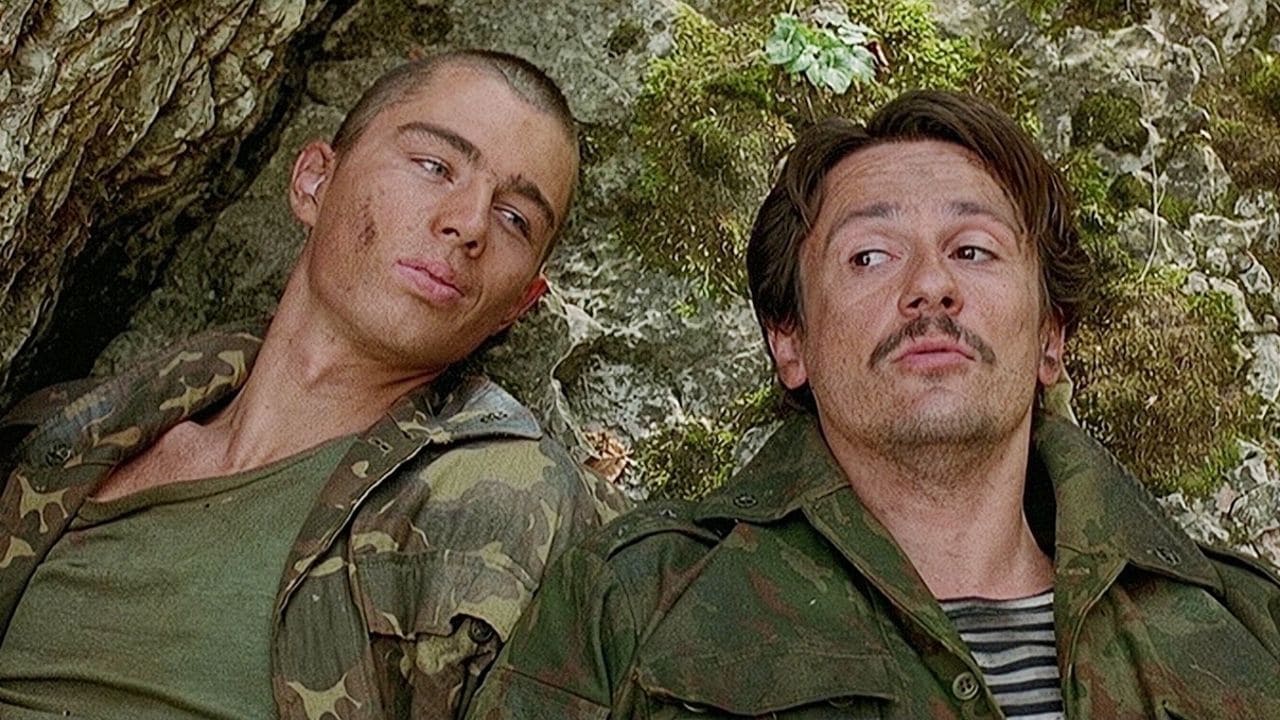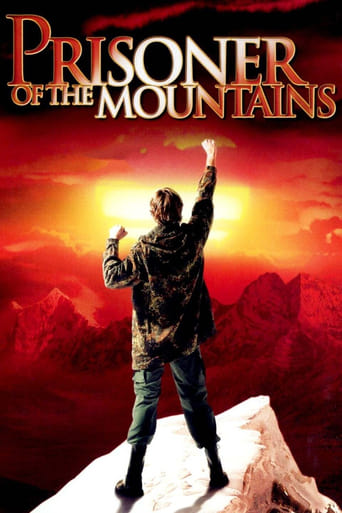

In Bodrov's Prisoner of the Mountain, Ivan (Vanya) has just entered the Russian army. He's barely uniformed by the time he is on his way to Chechnya. On the road into the mountains, the group comes under attack by a group of Chechen rebels. Vanya and Sacha are both knocked out and taken prisoner by the Chechens in the attack. One of the Chechens, Abdul, is hoping to trade the two Russians for his son, who is being held in a Russian army prison. The story that ensues shows both the cruelty and humanity that can be found in war. Both sides commit atrocities: the two captives kill the mute Hassan in their struggle as they attempt to escape—this is one cruelty on the Russian side. A Chechen father kills his son who has traded sides in order to work for the Russian police. Neither side has its hands clean. However, even in the midst of war, love can be found in this story— not just the fraternal love that grows between Vanya and Sacha, but love between enemies. Abdul's daughter Dina is kind to the captured soldiers, and in turn, Vanya shows her kindness she doesn't experience from her peers. She wants to help him escape, but he refuses to go because he knows that the rest of the villagers will never forgive her. Vanya, throughout the movie, represents an opposition to war. He never directly kills anyone, and never even learns how to properly handle a gun; even by the end of the movie, he is misfiring his weapons. When he is going to spar with the Chechen leader's nephew, he comes off as a pacifist. Even when he knows Sacha is dead, he doesn't turn to violence as a solution. A beautiful story with a beautiful backdrop, Prisoner of the Mountain is a true Russian gem.
... View MoreThe characterization in Prisoner of the Mountains conveys an overall message against war. While the characters represent distinct attitudes that form this anti-war message, they are more than simple vehicles; they stand out as realistic human beings as well, which makes the message extremely powerful. First, there are characters who are used to war, and perpetuate its continuation. Sasha and Abdul-Murat represent similar somewhat values yet they are on opposing sides. This shows that there must be at least two sides to fight and continue a war; these two sides are often similar, however. Both characters are experienced on the battlefield, and seem initially content with the continuation of the war. Yet their motivations for fighting are very different. Sasha simply likes the guns and the fighting, while Abdul's struggle seems more political, and with his son's capture, it is certainly personal as well. These men are characterized as strong in the film, and unwilling to see the other's perspective. asThe reasons for fighting might be different, yet all of these men are stubborn and hardened in their opinions. Yet at times it seems that even these seasoned veterans are tired of the war. Sasha expresses this feeling occasionally throughout. Abdul similarly does so when he lets Vanya go at the end, as if he, too is growing tired of the conflict. This action could symbolize a hope for eventual peace.Dina and Vanya, in contrast, are relatively innocent about warfare, and do not have as strongly formed opinions about the fighting. Dina is pleasant to the soldiers, bringing them food and water; she even forms a friendship with Vanya. She is not interested in furthering the war, yet she is not interested in stopping it either; her role is the traditional woman at home, as a provider who will soon marry. Dina's father is very domineering over her, therefore, she is beginning to form some of his opinions, as shown by the scene when she tells Vanya that he must be killed. Yet the fact that she frees Vanya shows some hope in her character, and hope for the future. She begins to see Vanya as another person rather than some Russian slave, and therefore feels obliged to help him, despite her father's ideology and the war.Vanya is innocent because he lacks war experience. He never shoots anyone in battle, and the one time he obtains a gun he manages to misfire. He claims that he wants to be a good fighter, yet Sasha always mocks him when he does. Vanya does not seem truly satisfied with where he is, and his inexperience is especially evident in contrast to Sasha. By the end, Vanya has befriended the only hope for a new future, Dina. By granting his freedom, Dina provides Vanya with the hope of survival. Although enemies, they do not have to destroy one another. Indeed, Vanya and Sasha even make friends with Hasin. Vanya discovers that the "enemy" are only other people, who laugh and cry, who celebrate marriage and death just as his people do. Since he survived, Vanya now has the chance to bring his new understanding to others. Yet this understanding is still vague at best, since Vanya can not properly remember the faces of the people he met. The film therefore warns that this type of message can fade over time, and it is important that something is done about it before it is too late.
... View MoreExcellent and intriguing movie about the situation in the kaukasus, a very sensitive movie also which allows you to really live into the situation of the main characters on both sides, with brilliant acting and screenplay.
... View MoreBest, most moving anti-war movie I've ever seen. The scenery is breathtaking. The acting and direction superb, and the story is without equal. Highly recommended for anyone who likes great movies. This Russian movie is incredible in scope and production. Two thumbs up!
... View More